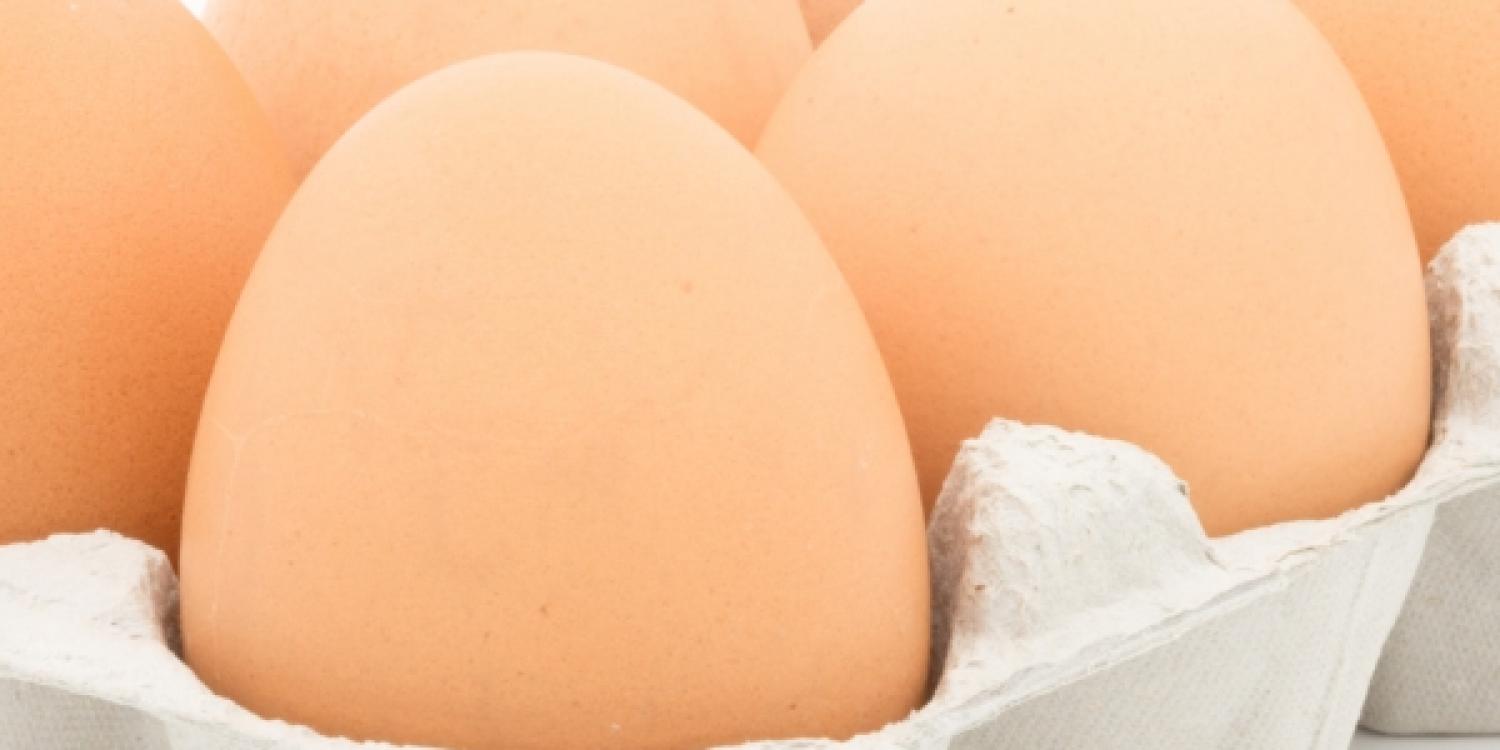Reducing food and packaging waste in egg supply chain

Information
Sturdy recycled PET packaging proves reliable
- Supermarket launches trial of rPET packaging to cut food waste from damaged eggs
- The new cartons reduce egg waste, are 30 % lighter, have a 44 % lower carbon footprint
A British supermarket chain launched a programme to tackle food waste. As part of this programme, the firm tried alternative egg boxes and managed to reduce both food and packaging waste.
This provides evidence to suggest that egg boxes made from recycled polyethylene terephthalate (rPET), rather than those traditionally made from pulp, can reduce packaging waste and food waste by reducing damage to eggs. The rPET boxes are made from 100 % recycled material, from a post-consumer source. This packaging change was adopted for all of Tesco’s own-brand free-range eggs in a number of stores in Livingston (Scotland) and monitored for a period of 11 weeks.
Key results
Using a range of qualitative and quantitative data collected from the trial, a number of conclusions were drawn:
- Egg waste was reduced on the trial lines in the Livingston area (Note: over the same period, egg waste on non-trial lines across the wider Tesco estate also decreased, potentially as a result of a range of additional activities conducted as part of Tesco’s ongoing campaign to tackle food waste)
- The carbon footprint of the rPET packaging was 44 % less than the pulp packs it replaced
- Product leakages were contained within the new packaging, whereas leaks in the pulp packs resulted in packaging waste and often greater food waste
- Boxes made from rPET were found to be 30 % lighter than traditional egg cartons
- Customers responded well to the new packs
Tesco mentions that lessons learned from this trial are applicable to a range of product lines in addition to eggs, and could contribute significantly to reducing food and packaging waste across the supply chain. Tesco also commissioned similar trials in its Belfast stores. Although seen as a success, further research needs to be conducted to understand the implications for this change across the entire supply chain. The implications of this new material need to be studied in full before full rollout of this packaging change.
Wrap, Reducing Food and Packaging Waste in the Egg Supply Chain, http://www.wrap.org.uk/sites/files/wrap/Product%20damage%20mapping%20in%20Egg%20Supply%20Chain%20-%20Tesco.pdf